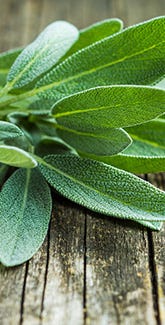How to Grow Artichokes
All About Artichokes
Oh, the artichoke…loved for its flavor, its appearance, and the fact that it's so fun to savor, whether on its own or as part of a dish or dip. The edible portions of the artichoke are the fleshy bases of the plants unopened flower bracts, as well as the heart of the choke. When left to bloom, the choke becomes a beautiful purple, thistle-like flower that can be used in dried flower arrangements.
How to Plant and Grow Artichokes
In the temperate climates of most of the United States, the artichoke is best raised as a container plant.
- Soil: Artichokes require nitrogen rich, well-drained soil and, as the plant matures, lots of water.
- Starting Seeds: Seedlings should be started indoors 12 weeks before the last spring frost. We have found seedlings to be very susceptible to root rot, so be careful not to overwater them during the earliest stages of growth. If possible, after the first six weeks of growth, move the seedlings to a cold frame (a protective enclosure with transparent roof to let in sunlight).
- Transplanting: After six weeks in a cold frame, transplant the seedlings into a container 16-20 inches in diameter filled with easily draining soil (one seedling per container).
- Growing: For the Green Globe variety specifically, continue to feed and water throughout the spring, summer, and fall. After removing any dead or dying leaves, bring the containers indoors before the first frost. Leave artichokes indoors until all danger of frost is over in the spring. Water less frequently during the winter months. Do not fertilize during the winter months. About six weeks before the containers are placed outside, begin to fertilize again.
- Harvesting: While many artichoke plants don't start producing buds until the second year, Green Globe Variety should start to prduce artichokes in the first year. The artichoke plants should continue to produce chokes each year for about five years. After 5 years the plants become less and less productive.
Be sure to read the detailed growing directions on your seed packet - these will give you helpful instructions, specifically for the variety that you are growing.
Did You Know? Fun Fact About Artichokes
Artichokes contain fiber, folate, iron, magnesium, and vitamin K, as well as high levels of antioxidants like vitamin C.
Plus, artichokes are one of the best garden plants to support pollinators because of their sturdy, flat leaves.



